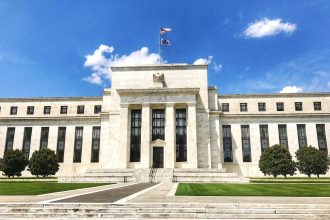Our writers and editors used an in-house natural language generation platform to assist with portions of this article, allowing them to focus on adding information that is uniquely helpful. The article was reviewed, fact-checked and edited by our editorial staff prior to publication.
Most of us rely on our bank accounts for managing our finances, paying bills, receiving a paycheck and more. So, when a bank closes an account unexpectedly, it can be both inconvenient and worrying. If you have experienced this, you’re probably wondering why this happened and what you can do about it.
Here are some of the reasons a bank may close your account, what you can do next and how to avoid future bank account closures.
Key takeaways
- Banks have the right to close accounts for various reasons, including inactivity, low balance or suspicious activity.
- Prompt action and communication with the bank are crucial if an account is unexpectedly closed.
- The unexpected closure of a bank account can have a significant financial impact, making it important to take preventative measures.
Why a bank could close your account
It’s important to understand that banks have the right to close accounts based on their discretion and internal policies, and there are several reasons a bank might decide to close your account.
These can include inactivity or low activity over an extended period of time, having a zero or negative balance or suspicion of fraudulent activity. Excessive bounced checks or overdraft fees can also lead to account closure. Other causes might be a violation of account policies, being flagged for suspicious activities or the bank’s decision to cease business with individuals in high-risk occupations or with a criminal conviction.
What to do if your bank closes your account
If you find your bank account suddenly closed, it’s essential to take prompt action. Here’s what you can do:
- Contact the bank immediately: As soon as you become aware of the account closure, reach out to your bank. Ask them for the specific reasons for the closure and inquire about the procedure to collect any remaining funds.
- Stop direct deposits and automatic withdrawals: To avoid bouncing checks or missing bill payments, reroute your direct deposits to another account. Also, cancel any automatic payments linked to the closed account.
- Settle any outstanding balances: If your account was closed due to a negative balance, find out how to settle the amount. Clearing this debt is crucial to prevent it from being sent to a collection agency, which could harm your credit score.
- File a complaint if necessary: You can submit a complaint to the federal Office of the Comptroller’s Customer Assistance Group if you believe your account was wrongly closed.
- Explore other banking options: Start looking for new banking options. If you’re having difficulty opening a new account due to your banking history, consider second-chance bank accounts designed for customers with past banking issues.
- Monitor your accounts regularly: To avoid similar situations in the future, keep a close eye on your account activity. Set up alerts for low balances or unusual transactions and regularly review your bank statements for any errors.
- Maintain a paper trail: Keep documentation of all your interactions with the bank regarding the account closure. This includes notes from phone conversations and copies of written notices.
By following these steps, you can navigate through the inconvenience and potential financial impact of an unexpected bank account closure.
How to avoid a bank account closure
Prevention is the best option when it comes to avoiding bank account closures. Here are some proactive steps you can take:
- Handle checks with caution: To prevent check fraud, be careful with how you handle checks. If you need to mail checks, take them directly to the post office. Avoid accepting checks from people you don’t know.
- Stay in communication with your bank: Respond promptly to any communications from your bank. If you plan to make any significant financial changes, such as a large deposit or lifestyle shift, inform your bank ahead of time.
- Sign up for alerts and notifications: Enroll in your bank’s notification services. These alerts can help you monitor your account balance and transactions, helping you avoid falling below minimum balance requirements.
- Maintain account activity: Regular account activity demonstrates to the bank that your account is not a risk. Avoid keeping your account at a zero or negative balance and ensure you use your account regularly.
- Avoid high-risk transactions: If possible, avoid transactions or business activities that banks might consider high-risk, such as online gambling or certain types of sales.
By implementing these measures, you can significantly reduce the risk of an unexpected bank account closure. Remember, the key to a healthy banking relationship is communication, responsible usage and understanding your bank’s policies.
FAQs
-
While banks can close your account without prior notice, they typically will notify you after the fact to explain the closure and guide you on how to retrieve any remaining funds. It’s crucial to reach out to your bank promptly if your account is closed to understand why and secure your balance.
-
If your bank account is closed with a balance remaining, the bank will issue a refund, typically by mailing you a check. If the account is closed due to suspected criminal activity, the bank has the right to freeze your assets.
-
If your bank account is locked, you can still view your account and make deposits, but withdrawals and transfers are blocked. Autopay bills will also fail, as previously authorized transactions are stopped.
Bottom Line
The unexpected closure of a bank account can be both inconvenient and worrying, but there are steps you can take to prevent it from happening. By staying informed, communicating with your bank and being responsible with your account, you can avoid the potential financial impact and maintain a healthy banking relationship.
Read the full article here
















